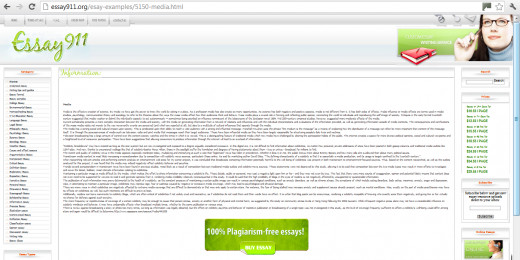What Do to If You've Been Plagiarized

Many feelings and thoughts may run through your mind when you stumble upon a website with words or images that look so familiar... that you realize they're yours! You've been plagiarized! Your personal work has been stolen, possibly for someone else's benefit. What can you do?
Once your work has been plagiarized (A.K.A. taken and claimed as their own), you should first try to contact the person and find out what happened. Did they forget to cite the source? What is its purpose there? You should ask for it to be removed. Try not to get angry about it; there's no need to start a fight yet.
If that doesn't work, contact the website administrator, manager, or other authority on website content, or even the person's supervisor. Let the administrator know what happened, provide your website address, and show what you believe is the copied content. Don't blame them for anything that happened, but let them know because they have the power to remove plagiarized work for their site.
When you contact the website owner or authority, you should include the following information:
I would like to report a site that has copied content from my Hub onto their page. The copyrighted work at issue is the text that appears on (URL)
The following page infringes on my copyrighted work: (URL)
I have a good faith belief that use of the copyrighted materials described above as allegedly infringing is not authorized by the copyright owner, its agent, or the law.
I swear, under penalty of perjury, that the information in the notification is accurate and that I am the copyright owner or am authorized to act on behalf of the owner of an exclusive right that is allegedly infringed.
My contact information is as follows:
(Name, e-mail, address, or other contact information)Thank you.
Signed, (your name)
If this doesn't work, you might have to take legal action if it's important enough to you.
Let's discuss what plagiarism is. According to U.S. law, expressing original ideas is considered intellectual property, and thus is protected by copyright laws, so long as they are recorded in some way. These all qualify as forms of plagiarism:
- Claiming someone else's work as yours
- Copying without giving credit
- Not quoting borrowed content
- Falsely or incorrectly citing a source
- Only changing words while leaving the sentence structure intact
- The majority of your work is borrowed or copied, whether it's been properly cited or not
Thankfully, there are plenty of ways to try to prevent plagiarism. For one, you can create evidence that you have documented and/or published your work, whether by putting a date on it, e-mailing, or uploading it onto a server or elsewhere. You can also purchase copyrights and other protections for it. Make sure your name and other identifying factors are printed along with the work so it's obvious where it came from and whose it is.
Additional resources
- Discouraging Plagiarism
- Plagiarism.org : Learning Center : Plagiarism Definitions, Tips on avoiding Plagiarism, Guidelines f
Welcome to Plagiarism.org, the online resource for people concerned with the growing problem of internet plagiarism. This site is designed to provide the latest information on online plagiarism. - Plagiarism and the Web
- Featured Articles: Stopping Internet Plagiarism - PlagiarismToday



